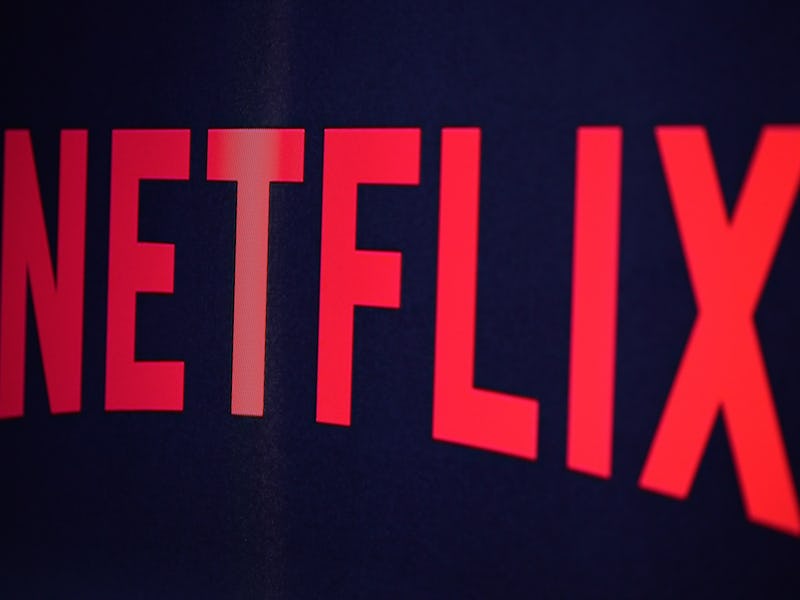5 Explosive Revelations About Netflix
The streaming service's conflict with Hollywood is putting the company at risk.

For anyone who hasn’t been living under a rock for the last few years, it’s no secret that Netflix has become a dominant force in film and television. What started out as a DVD subscription service has turned into so much more. Netflix produces original films, series, and comedy specials, including critical successes such as Stranger Things, Jessica Jones, and Master of None, shows that are turning the concept of network TV on its head.
This new way of producing moving pictures shows potential as more and more consumers ditch cable subscriptions in favor of streaming services like Netflix, Hulu, and HBO Now. Netflix’s content benefits from a non-traditional approach, too, as some shows’ creators report that Netflix gives them greater freedom to produce what they want without network executives passing down demands.
But challenging the established order comes with growing pains as well. On Friday, The Wall Street Journal published an article in which reporters Joe Flint and Shalini Ramachandran lay out just how much of a threat Netflix is to the Hollywood establishment, and how that conflict could be putting the streaming company at risk.
Here are the five biggest revelations that emerge from the article:
5. Gilmore Girls creator says her Netflix days are probably not done
Amy Sherman-Palladino, creator and executive producer of the beloved series Gilmore Girls tells The Wall Street Journal that her experience working on the show’s revival with Netflix was a far cry from what she experienced working with networks.
“If you disagree with a note from Netflix or Amazon, you can have a creative discussion about it. It’s not viewed as, ‘You didn’t take my notes? You’re an enemy, and I’m going to cancel your show,’” she tells The Journal. “My network days are probably done.”
4. It’s created a “feeding frenzy” because it’s driving up costs industry-wide and creating a scarcity of talent
Netflix offers actors more money for roles, as much as $250,000 per episode, Flint and Ramachandran report. So while the movie industry helped give rise to Netflix by licensing films and shows, they are now in direct competition for actors and employees.
“It’s a feeding frenzy to get the best people,” says casting director Jeff Greenberg.
This has also led some media companies to rethink their licensing agreements, which is probably why Netflix will soon lose Buffy and Angel, among other shows.
3. Making a show with Netflix is like making a “deal with the devil”
Flint and Ramachandran write that Netflix requires producers and actors to give the company worldwide rights for long time periods. This can make producing a show with Netflix much less desirable since it eliminates the potential profit from selling reruns.
“When you make a deal with Netflix, you’re making a deal with the devil financially because, basically, they are buying out all rights,” talent agent Lee Dinstman tells The Journal.
Additionally, if a show gets cancelled, show creators often can’t pitch it to another network for a really long time due to these rights agreements.
2. 70 percent of Netflix viewing is of licensed material (not originals)
This might not sound that important, but it is. Netflix is making huge waves with Hollywood because it’s producing so much of its own content. But the reality is that the vast majority of Netflix’s viewers are watching licensed content made by other companies.
This doesn’t matter all that much until those companies, feeling threatened by Netflix’s new abundance of original content, pull their licensing agreements. This jeopardizes the company’s audience base, who come primarily for the licensed shows.
It’s a tricky situation: The original content that makes Netflix so unique is actually threatening the thing that makes up the majority of its viewership.
1. “They’re not promoting the vast majority of shows they make.”
The significance of this allegation, made to Flint and Ramachandran by an anonymous talent agent, can’t be overstated. With a greater number of original titles, Netflix has reduced the amount of money it allocates to promote each show, producers and agents tell The Journal.
Netflix Chief Content Officer Ted Sarandos says this oversimplifies the situation. He says that Netflix focuses on promoting shows in the app instead of on billboards. But that type of promotion doesn’t snag new subscribers, only viewers who already subscribe and watch Netflix.
Most importantly, if film and television professionals get the impression that Netflix won’t support a show or movie with promotion and marketing, this could endanger Netflix’s ability to draw desirable talent. Without stars for shows, the whole structure crumbles.
It’s not clear what Netflix can do to repair this fracture with Hollywood, or whether it even wants to. All we know is that you’d better binge-watch Arrested Development before you lose it on April 1.